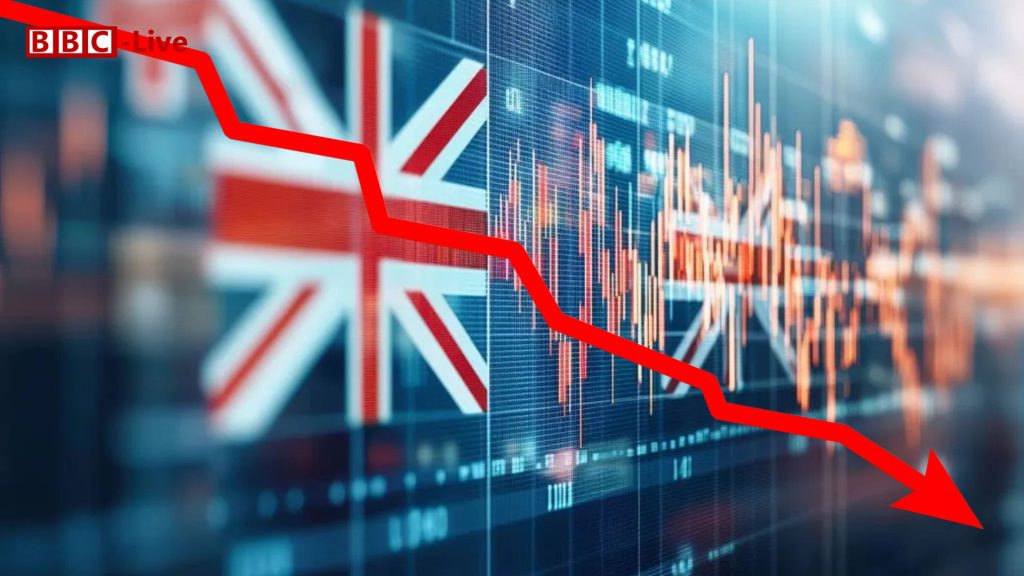
Businesses in the UK Brace for Economic Decline
Challenging Forecasts Ahead
Businesses across the UK are preparing for a tough start to 2025. Many are expecting a sharp decline in economic activity. A recent report from the Confederation of British Industry (CBI) highlights this trend. Firms across various sectors plan to reduce hiring and cut back production in the coming months. This grim outlook reflects the ongoing uncertainty surrounding the UK economy. Companies are still dealing with the effects of recent government fiscal policies.
Declining Business Confidence
The CBI’s growth indicator survey, conducted between November 25 and December 12, paints a troubling picture. It surveyed 899 companies and found that expectations for economic growth are at their lowest since November 2022. During that time, the UK economy was still recovering from the chaos of Liz Truss’s brief time as Prime Minister. The survey results indicate a widespread sense of pessimism. Both the service and manufacturing sectors predict a significant decline in activity for the first quarter of 2025.
Rising National Insurance Contributions
One major factor contributing to this bleak outlook is the increase in national insurance contributions (NICs). This change came from Chancellor Rachel Reeves’ October budget. The government aims to raise £25 billion through this tax increase. However, businesses are already struggling with low demand. Many argue that the higher costs from NICs could lead to slower wage growth and even job losses. The CBI has stated that this increase adds to an already challenging environment. Companies are already facing weak consumer demand and rising costs.
Retail Sector Struggles
The retail sector is also facing tough times. The British Retail Consortium (BRC) has reported a significant drop in consumer spending expectations. There is a notable six-point decline across nearly all retail categories. BRC Chief Executive Helen Dickinson notes that if these predictions hold, retailers will struggle just as they enter the critical January sales period. Consumers are showing less confidence, which puts further strain on businesses grappling with high inflation and supply chain disruptions.
Difficult Economic Reports
These warnings come amid a series of troubling economic reports. They have raised doubts about the government’s ability to spur growth anytime soon. For instance, the CBI’s industrial trends survey revealed a dramatic drop in orders at UK factories in December. The total order level has fallen to its lowest point since the peak of the COVID-19 pandemic in 2020. This decline signals that manufacturers expect production to slow down, contributing to the overall economic downturn.
Bank of England’s Concerns
The Bank of England’s recent statements have only added to the unease in the market. The central bank decided to keep interest rates at 4.75%. It indicated that UK growth will likely stagnate during the last months of 2024. Furthermore, inflation surged to an eight-month high of 2.6% in December. This rise has led to concerns that interest rates may need to remain high well into 2025. Economists warn that high borrowing costs and rising inflation could dampen household spending. This situation would put additional pressure on businesses that are already struggling.
Potential Threats on the Horizon
City analysts have voiced concerns about a severe economic slowdown combined with persistent inflation. They suggest that this scenario could force the government to raise taxes again soon. Such actions could undermine efforts to stimulate growth. Additionally, there are fears of a trade war with the United States. The prospect of Donald Trump returning as president in January 2025 raises concerns about tariffs on US imports. This could further disrupt trade and worsen the UK’s economic struggles.
Call for Urgent Action
In light of this situation, the CBI is urging the government to take immediate action. They want to restore confidence in the business community. The CBI has proposed reforms to the apprenticeship levy, incentives for better worker health, and a re-evaluation of business rates. Businesses express frustration regarding the lack of concrete steps to stimulate growth. The CBI’s call for action indicates a growing concern about the UK’s economic future.
Government’s Defense and Plans
Labour’s Commons leader, Lucy Powell, defended the government’s economic management. She acknowledged public disappointment but emphasized that the current challenges stem from past policies. Powell argues that meaningful changes will take time due to the difficult situation left by the previous administration.
A Treasury spokesperson echoed her sentiments. They stressed that difficult decisions are necessary to stabilize the economy and address the £22 billion fiscal gap. The spokesperson pointed to several measures designed to boost business confidence. These include cuts to corporation tax, relief on business rates for 250,000 properties, and investments in infrastructure and clean energy. The government has also created a National Wealth Fund. This fund aims to stimulate investment in British businesses and promote long-term growth.




